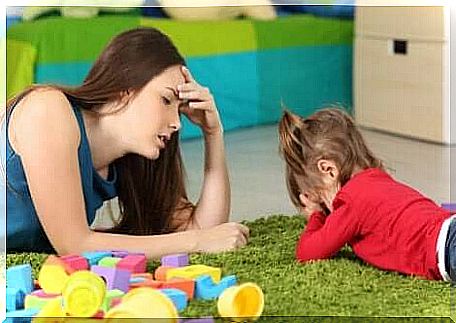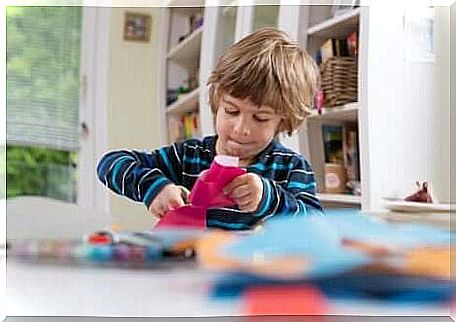Advantages And Disadvantages Of Forgiving Parents

Although forgiving parents do not have to be a bad thing, it is not necessarily the best basis for raising a child. This is especially true in extreme cases where this relaxed approach is not counteracted by other factors, such as strong parental influence or open communication.
Whether you choose one approach or another, experts like Dr. Jeff Nalin (founder of the Paradigm Treatment Centers ) argue that children need to know who is responsible. They need this point of reference so that they can understand what they can and cannot do.
Some parents who are overly so may choose to remain silent and avoid setting certain limits for fear that their child may react poorly, frustrated that they have finally received a no and do not get what they want. When this happens, the boundaries are set by others than the parents, more emphasis is placed on and becomes increasingly important.

The forgiving parent
But what exactly are forgiving parents like? They are quite easy to spot. They are usually kind, loving and accommodating to their children. Due to their inability to set boundaries, they form family groups without a solid structure, where chaos and improvisation prevail. They try to introduce as few restrictions as possible, which makes the child’s own wishes a priority.
In many cases, this lack of rules means that the child is not aware that rules even exist. They see their parents as friends, rather than authority figures. The problem is that parents themselves tend to prefer things this way, and enjoy the lack of conflict, regardless of the uncertainty or confusion these vague boundaries provide.
The benefits of forgiving parents
Despite all this, a more resilient parenting style has its advantages. According to Dr. Nalin, it can be especially beneficial for children who early develop a strong sense of responsibility and independence. Having the freedom to explore can, for example, encourage the child to face challenges earlier in life. This gives them room for unlimited growth.
In general, many of the children who grow up in this type of environment end up generating their own pillars of security. They use an adult approach, in the sense that they begin to look to the world and society for guidance on what they can and cannot do. For many, typical childhood fears do not exist, and others are less likely to violate their rights.
In addition, with fewer restrictions and plenty of time to do the things they like and are passionate about, these kids tend to be quite creative. They may also show some ability to learn new things. They lose the fear of punishment and as a result the fear of failure. If things do not work out the first time, they just try again.

The shortcomings and pitfalls of forgiving parents
However, there are also some disadvantages to consider. These children may, for example, demonstrate a lack of respect for the social norms that form the basis of peaceful coexistence. These are not strictly necessary, but they are created to make society more enjoyable for everyone. If the child does not embrace these norms, they may find it difficult to integrate socially.
Children with resilient parents have also been shown to be more prone to early anxiety. This is because they find it difficult to work under pressure from external standards. They may have difficulty working on a schedule, following orders from superiors or dealing with conflicts with those they do not agree with.
There are a number of different variables that can affect a child’s growth and development. One of the most influential factors is the dominant parenting style they grow up with. How beneficial or harmful a parenting style is depends on a number of factors, including the child’s own personality.
A responsible child who enjoys his or her own independence will grow best when parents avoid introducing stricter norms and rules than the child imposes on themselves. However, this approach can be counterproductive in impulsive or rebellious children.









